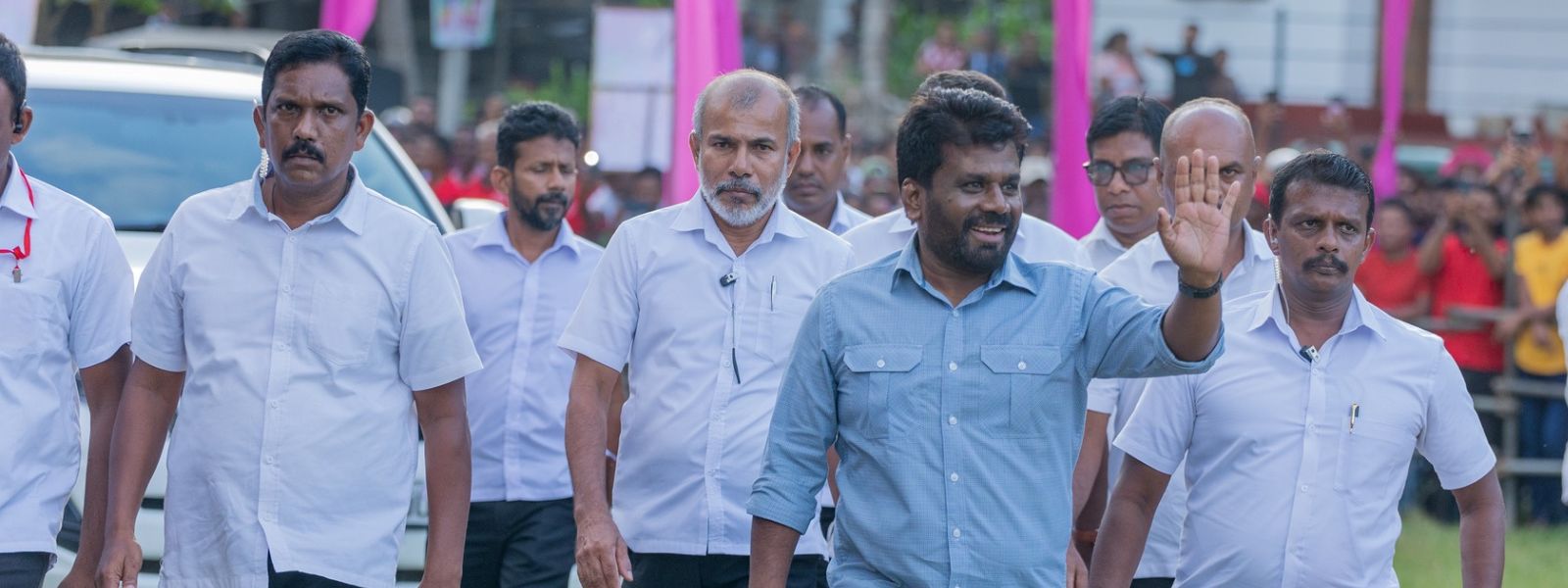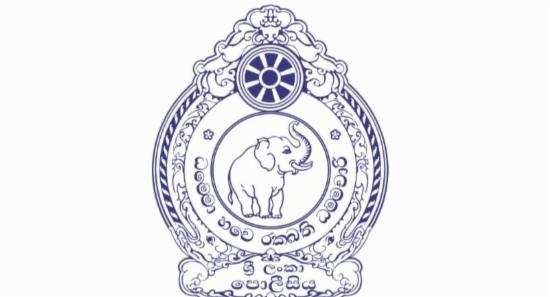.webp)

From 3% to President: Who Is Sri Lanka's Anura Kumara Dissanayake?
COLOMBO (News 1st); Aruna Kumara Dissanayake, was elected as Sri Lanka’s president on Sunday (22) following a second round runoff.
The elections were the first since civil unrest in 2022 led to the resignation and departure from the country of the then-president Gotabaya Rajapaksa, who is widely blamed for the economic crisis gripping the country.
The 55-year-old AKD secured victory over opposition leader Sajith Premadasa and President Ranil Wickremesinghe, who took over the country two years ago after its economy hit bottom.
Dissanayake received 5,740,179 votes, followed by Premadasa with 4,530,902, Election Commission data showed.
It's a remarkable turnaround for a man who won just 3% of the votes in the 2019 election.
He will now inherit governance of a nation that is struggling to emerge from the shadow of that crisis, and a populace that is desperate for change.
Who is AKD?
Anura Kumara Dissanayake was born on November 24, 1968, in the village of Dewahuwa, Matale.
He is the second child of Ranbanda and Seelawathi.
Dissanayake received his primary education at Thambuttegama Primary School and completed his secondary education at Thambuttegama Central College.
From a young age, Dissanayake was involved in political activities.
He was a prominent student activist during the public protests against the Indo-Lanka Accord signed in 1987.
In 1992, he entered the University of Kelaniya, where he actively participated in various social and political activities, eventually earning a degree in Science in 1995.
Dissanayake's political career began with his involvement in the Socialist Students' Union affiliated with the Janatha Vimukthi Peramuna (JVP). He was appointed the National Organizer of the union and was elected to the JVP's Central Committee in 1997. In 1998, he joined the JVP's Political Bureau.
In the 1999 Provincial Council elections, Dissanayake was the JVP's candidate for Chief Minister of the Central Province.
He entered Parliament for the first time in 2000 through the National List and was re-elected in 2004 from the Kurunegala District.
During the United People's Freedom Alliance government in 2004, he served as the Minister of Agriculture, Lands, Irrigation, and Livestock, introducing several measures in these sectors.
From 2008, Dissanayake led the JVP's parliamentary group.
In 2010, he was re-elected to Parliament through the Democratic National Alliance's National List. It was led by the JVP.
In 2014, he succeeded Somawansa Amarasinghe as the leader of the JVP during the party's 7th National Convention, marking a significant turning point in the party's history.
In the 2015 general elections, Dissanayake was elected as a Member of Parliament for the Colombo District and served as the Chief Opposition Whip, dedicating himself to public service.
In August 2019, he played a key role in forming the National People's Power (NPP), a coalition of political parties, civil organizations, intellectuals, and activists, and became its leader.
Dissanayake contested the 2019 presidential election, securing 418,553 votes.
Throughout his political career, both inside and outside Parliament, he has been a dedicated representative of the people.
He was re-elected to Parliament in the 2020 general elections.
The NPP held its first national convention in December 2021, where Dissanayake was re-elected as the party leader.
He is known for his unwavering stance on democracy and human rights and his prominent role in fighting corruption and fraud.
In the presidential race, he campaigned under the theme "A prosperous country - beautiful lives."
Other Articles
Featured News





.png )

-820726_550x300.jpg)
-820720_550x300.jpg)
-820714_550x300.jpg)







-819380_550x300.jpg)


-812087_550x300.jpg)
-810262_550x300.jpg)








.webp)






